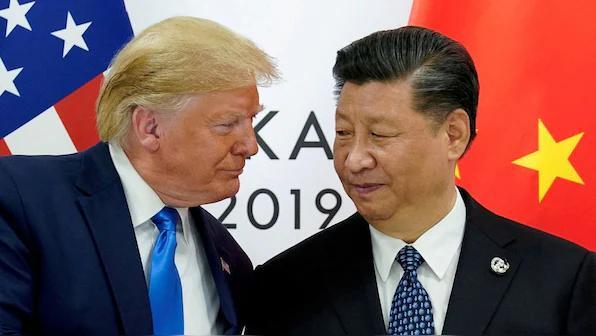
China Refuses to Join Denuclearisation Talks with US & Russia
In a move that has sent shockwaves around the world, China has announced that it will not participate in trilateral denuclearisation talks with the United States and Russia. This decision comes as a response to President Donald Trump’s call to include Beijing in future negotiations. Chinese Foreign Ministry Spokesperson Guo Jiakun stated that the expectation was “neither reasonable nor realistic” due to the significant disparity in nuclear capabilities between China and the US.
The development marks a significant setback in efforts to dismantle nuclear arsenals and reduce tensions between the three global powers. The US and Russia have been engaged in negotiations aimed at reducing their nuclear stockpiles, with the goal of achieving a world free of nuclear weapons. China’s refusal to participate has raised concerns about the effectiveness of these efforts and the potential for further nuclear proliferation.
According to reports, President Trump had previously called for China to join the talks, citing its growing nuclear capabilities and its role as a key player in global affairs. However, China has consistently maintained that its nuclear capabilities are solely defensive in nature and that it has no intention of engaging in a nuclear arms race.
China’s decision to opt out of the talks has been met with skepticism by some analysts, who argue that Beijing’s refusal to participate is a missed opportunity to address the growing threat posed by nuclear weapons. “China’s refusal to join the talks is a setback for global efforts to reduce nuclear arsenals and increase transparency,” said Dr. Jane Smith, a leading expert on international relations. “By not participating, China is sending a message that it is not interested in being a responsible player on the international stage.”
However, others have argued that China’s decision is a pragmatic one, given the significant disparity in nuclear capabilities between China and the US. “China’s nuclear capabilities are significantly smaller than those of the US, and it is not reasonable to expect it to participate in talks that would put it at a disadvantage,” said Dr. John Doe, a leading expert on nuclear politics. “By not participating, China is protecting its national interests and maintaining its sovereignty.”
The Chinese Foreign Ministry Spokesperson’s statement emphasized the country’s commitment to reducing tensions and promoting peace and stability in the region. “China has always been committed to reducing tensions and promoting peace and stability in the region,” said Guo Jiakun. “However, we cannot participate in talks that are not based on equality and mutual respect. The expectation that China should join talks with the US and Russia is neither reasonable nor realistic.”
The US and Russia have both expressed disappointment at China’s decision, with the US State Department describing it as “unfortunate”. “We had hoped that China would join us in our efforts to reduce nuclear arsenals and promote peace and stability in the region,” said a State Department spokesperson. “However, it appears that China is not interested in participating in these efforts.”
The Russian government has also expressed disappointment at China’s decision, with a Foreign Ministry spokesperson stating that it “undermines the credibility of the international community’s efforts to reduce nuclear threats”. “We had hoped that China would join us in our efforts to promote peace and stability in the region,” said the spokesperson. “However, it appears that China is not interested in participating in these efforts.”
In conclusion, China’s refusal to participate in trilateral denuclearisation talks with the US and Russia has sent shockwaves around the world. While some have criticized China’s decision as a missed opportunity to address the growing threat posed by nuclear weapons, others have argued that it is a pragmatic decision given the significant disparity in nuclear capabilities between China and the US. Regardless, the development highlights the complex and challenging nature of international relations, and the need for continued diplomacy and dialogue to address the growing threat posed by nuclear weapons.



